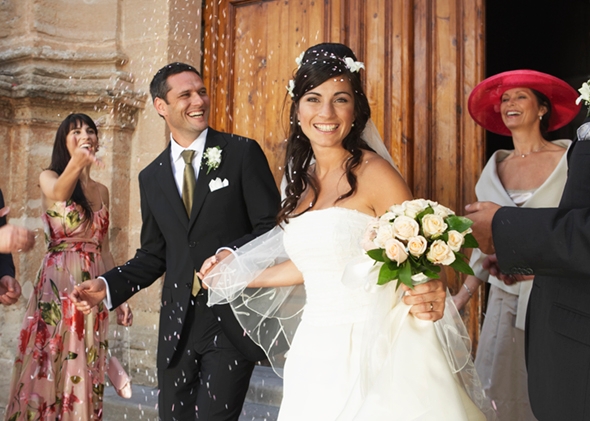
Longevity and Marriage: I do, Later
Longer life expectancies may change the institution of marriage.

Summertime is the season for weddings, but while hundreds of new brides and grooms step up to the altar, one can’t help wondering if longer life expectancies will eventually force an overhaul of the institution of marriage?
A few years ago, a couple of legislators in Mexico City proposed a sunset clause of two years for all new marriages, at which point the couple could choose to remain married or dissolve the union with no consequence. The controversial law didn’t pass, but the idea garnered international attention. As life expectancy has grown, some reasoned, ‘until death do us part’ may seem a bit long.
Writing in the New York Times, author Matt Richtel suggested the idea of a 20-year marriage contract that, he argues, “acknowledges the harsh truth that nearly half of marriages in the United States end in divorce and many others are miserable. The rough idea: two people, two decades, enough time to have and raise children if that’s your thing; a new status quo, a ceremony with a shelf life, till awhile do us part.” It’s an interesting idea, but not really necessary, since people have already found other means to have temporary relationships.
Back in 1850 when life expectancy was a short 43 years, individuals did not have the luxury of waiting around to look for their “perfect soul mate.” The goal instead was to have children early and hope for the best. Now that life expectancy is around 80 years, young people can focus on economic stability and other important life elements before taking a leap into a structure they hope is permanent. This change shows up in ‘age at first marriage’ statistics.
In 1950, the average age at first marriage was 23 for men and 20 for women. Today, those numbers have hit historic heights—27 for women, and 29 for men—and are still climbing. Both men and women know they have more time in their lives in which to have a family, so they can take more time to properly plan and select a mate. This helps to explain the growing number of people that “co-habit” or live together without being married – a type of temporary marriage with an end date at either party’s choosing.
Cohabitation began to lose its stigma following the sexual revolution in the 1960s, and has increased by a whopping 900 percent in the last 50 years. “It’s becoming more acceptable to be in a long-term, committed relationship without a legal document,” Pamela J. Smock, director and research professor at the Population Studies Center at the University of Michigan-Ann Arbor told NBC news. “The question becomes not who cohabits, but who doesn’t?” she said.
Even with rates of cohabitation going up, eventually, most Americans want to be married. Perhaps this is because, despite the argument by some that marriage is simply an economic arrangement, many still see it in a romantic light.
Nobody gets married thinking that they will eventually get divorced – probably not even talk show host Larry King who, like actress Elizabeth Taylor before him, has been married eight times. Marriages are about starting and creating a life together. The intentions are long term.
As writer Sarah Fentem put it in the Atlantic, “If a man got down on one knee and asked "Will you marry me...for two years?" I don't know if I would laugh or cry. Either way, I wouldn't say "I do" to a man who only thought I was worth marrying for two years.” Fentem wants to hold out for the happy ending, which is not a bad idea. Despite the fact that divorce rates are high, those who stay married do tend to be happier overall.
Many studies have documented the benefits of tying the knot, including one produced by University of Michigan researchers using data from thousands of participants in a long-running survey. In discussing the work, lead researcher Stevie Yap told the Huffington Post “our data suggests that married people are happier than they would have been if they didn’t get married. Marriage protects against age-related declines in happiness.”
While longer lives will create more opportunity for relationship ‘churn’ – cohabitation, marriages, and divorce – it is unlikely that people will want to trade in their fantasy for something cold, like a pre-set sunset clause. After all, some fantasies do work out.